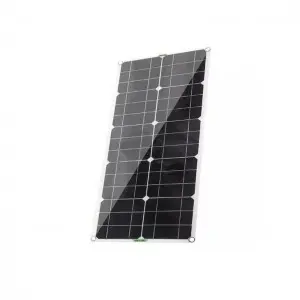With the growing popularity of renewable energy, more and more homeowners are turning to solar energy as a sustainable and cost-effective solution. Solar panels offer a clean and efficient way to generate electricity, but the question remains: How many solar panels are actually needed to power a home? In this blog, we’ll explore this topic and provide some valuable insights to help you determine the number of solar panels you need for your home.
Know your electricity usage:
It’s important to know your home’s electricity usage before calculating the number of solar panels you’ll need. This can be determined by checking your past utility bills, which usually show your average monthly electricity usage in kilowatt-hours (kWh). Analyzing this data will help you determine how many solar panels you need to meet your energy needs.
Factors that affect the performance of solar panels:
Several factors can affect the performance and efficiency of a solar panel, including geographic location, orientation and tilt angle of the system, shading, weather conditions, and the type and efficiency of the panel itself. These are factors to consider when calculating the number of solar panels your home will need.
Calculate energy consumption and solar panel requirements:
To estimate the number of solar panels needed, follow these steps:
Step 1: Determine your average monthly energy consumption in kilowatt-hours.
Step 2: Divide your monthly energy consumption by 30 to get your daily energy consumption.
Step 3: Divide your daily energy consumption by the average daily sunshine in your area to find the required solar panel capacity in kilowatts.
Step 4: Calculate the number of solar panels needed by dividing the required capacity by the rating of each panel.
Remember, these calculations provide estimates and should be reviewed by a professional solar installer for accuracy and to take into account other factors specific to your location.
Other considerations:
Besides the number of solar panels, there are other considerations that must be considered before installing a solar power system. These include available roof space, budget constraints and any regulations or incentives offered by local authorities. Additionally, battery storage can be a valuable addition to solar panels, allowing you to store excess energy generated during the day for use at night or during a power outage.
Installing solar panels is a great way to reduce your carbon footprint and generate clean energy for your home. While the number of solar panels required for each home will vary based on a number of factors, implementing a solar power system can greatly contribute to your energy independence and reduce your reliance on traditional grid electricity. By considering your energy consumption, available roof space, and other important factors, you can confidently switch to solar power and enjoy the benefits it has to offer for years to come.
Post time: Aug-08-2023
